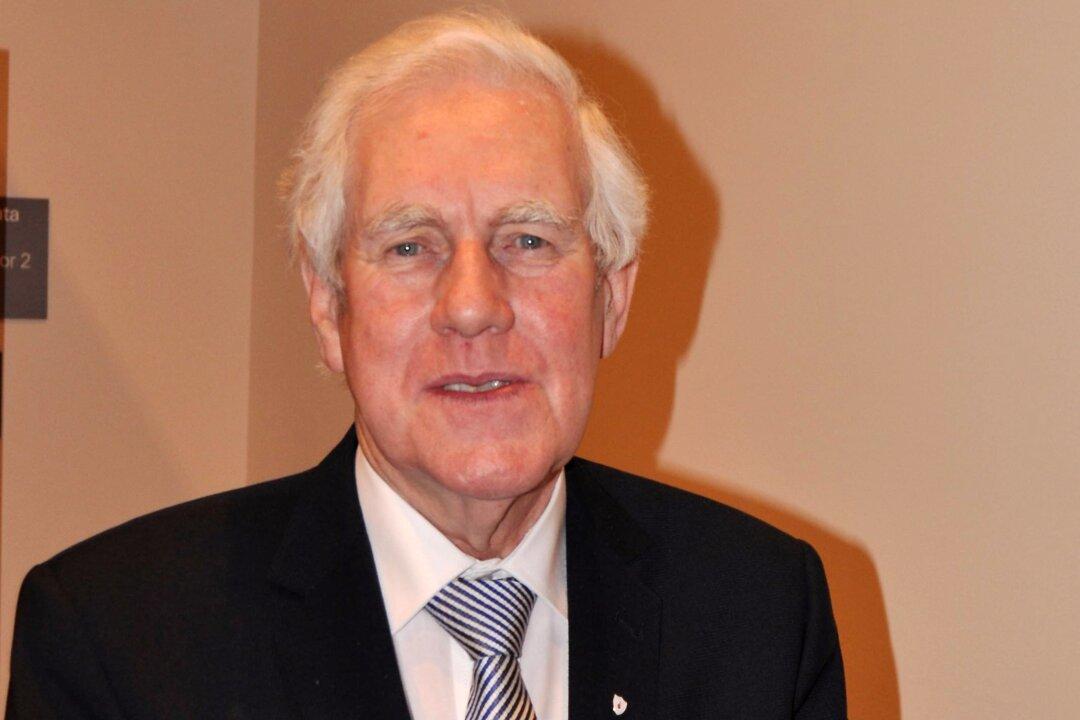Ireland’s “Exclusive Economic Zone” waters are soon to be incorporated into the “Bonn Agreement” in a bid to combat illegal and accidental pollution.
The greater North Sea includes the North Sea, the English Channel, the waters around Ireland and parts of the Western Approaches and the Norwegian Sea.
Earlier this month in Bonn, Germany, North Sea states and the European Community agreed on a framework for a revised action plan (Bonn Agreement) that will strengthen joint prevention and response to marine pollution caused by shipping, other maritime activities and offshore structures such as Oil rigs and wind farms.
Wolfgang Tiefensee, Federal Minister of Transport, Building and Urban Affairs, Germany, congratulated the Bonn Agreement Contracting Parties on their 40 years of work. He said that he was convinced that in the future the Bonn Agreement will continue to make a positive impact on the environmental status of the North Sea and surrounding areas by 2020, a goal that was set by the Integrated Maritime Policy for the European Union and its Marine Strategy Framework Directive.
The latest meeting saw a unanimously response from all eight North Sea States (Belgium, Denmark, France, Germany, the Netherlands, Norway, Sweden, the United Kingdom) and European Community representatives, to protect the North Sea against risks from maritime activities. Ireland and Spain were there in observance.
According to a Department of Transport statement, Director of the Irish Coast Guard Chris Reynolds said, “Work is well advanced on Ireland becoming full signatories to the ‘Bonn Agreement’ following on from a unanimous invitation of all contracting parties. This means the Sea Area covered by the Agreement will be enlarged to include Irish waters.
“The dangers of accidents and pollution in our waters continue as a result of bigger vessels and growing volumes of cargo. The Action Plan agreed today will strengthen our joint pollution prevention and control measures. We look forward to hosting the next meeting of the Bonn Agreement in Dublin in December 2010.”
The “Bonn Agreement” has acknowledged the sizeable growth of offshore wind-farms by recognising the need to incorporate their specifics into the agreement.
In a statement from the “Bonn Agreement”, Ms Pia Bucella, Chair of the Bonn Agreement and Director at the European Commission, concluded a tribute to the 40th anniversary proceedings saying, “I am convinced that the Bonn Agreement Action Plan, addressing some of these challenges, has the potential for becoming a key milestone in the further development of the Agreement.”
In order to become a signatory of the Bonn Agreement Ireland needs to adhere to certain requirements. Ireland needs to keep its zones of responsibility under surveillance for threats of marine pollution, including co-ordinating aerial and satellite surveillance.
In the event of a pollution threat Irish authorities must notify other member states and also respond using common operational approaches, so they can achieve the necessary standards of prevention and clean-up. Ireland will also have to support other “Bonn” states in response to operations where possible, we also need to partake in joint exercises to ensure our readiness.
“Since 1985, the tonnage handled by North Sea ports has risen by nearly 50 percent. Traffic through the North Sea to the Baltic has risen similarly. The measures to reduce oil pollution (including the work of the Bonn Agreement) have been successful: the number of slicks detected has reduced since 1990 by about 50 percent. But ship traffic is expected to rise in the next 10 years by another 50 percent. Major new traffics will appear (e.g., oil exports from Russia through Murmansk and Kaliningrad). Preventing a rise in pollution incidents, let alone maintaining reductions, needs effort.” - www.bonnagreement.org
“In 1967, the tanker Torrey Canyon was wrecked on the ”Seven Stones” off the Isles of Scilly (south-west of England). It was carrying 117,000 tonnes of crude oil. The lack of international co-ordination to deal with this disaster highlighted the need for a system to enable co-operation between North Sea states to deal with such disasters. Coastal states could not wait until the threat was in their waters; they needed to respond collectively as soon as possible.
“Within two years, Belgium, Denmark, France, Germany, the Netherlands, Norway, Sweden and the United Kingdom had set up the Bonn Agreement to meet this need for co-operation. When the Agreement was revised in 1983, the European Community became a Contracting Party. In 1987, the Agreement was extended to cover co-operation in surveillance.” - www.bonnagreement.org
The greater North Sea includes the North Sea, the English Channel, the waters around Ireland and parts of the Western Approaches and the Norwegian Sea.
Earlier this month in Bonn, Germany, North Sea states and the European Community agreed on a framework for a revised action plan (Bonn Agreement) that will strengthen joint prevention and response to marine pollution caused by shipping, other maritime activities and offshore structures such as Oil rigs and wind farms.
Wolfgang Tiefensee, Federal Minister of Transport, Building and Urban Affairs, Germany, congratulated the Bonn Agreement Contracting Parties on their 40 years of work. He said that he was convinced that in the future the Bonn Agreement will continue to make a positive impact on the environmental status of the North Sea and surrounding areas by 2020, a goal that was set by the Integrated Maritime Policy for the European Union and its Marine Strategy Framework Directive.
The latest meeting saw a unanimously response from all eight North Sea States (Belgium, Denmark, France, Germany, the Netherlands, Norway, Sweden, the United Kingdom) and European Community representatives, to protect the North Sea against risks from maritime activities. Ireland and Spain were there in observance.
According to a Department of Transport statement, Director of the Irish Coast Guard Chris Reynolds said, “Work is well advanced on Ireland becoming full signatories to the ‘Bonn Agreement’ following on from a unanimous invitation of all contracting parties. This means the Sea Area covered by the Agreement will be enlarged to include Irish waters.
“The dangers of accidents and pollution in our waters continue as a result of bigger vessels and growing volumes of cargo. The Action Plan agreed today will strengthen our joint pollution prevention and control measures. We look forward to hosting the next meeting of the Bonn Agreement in Dublin in December 2010.”
The “Bonn Agreement” has acknowledged the sizeable growth of offshore wind-farms by recognising the need to incorporate their specifics into the agreement.
In a statement from the “Bonn Agreement”, Ms Pia Bucella, Chair of the Bonn Agreement and Director at the European Commission, concluded a tribute to the 40th anniversary proceedings saying, “I am convinced that the Bonn Agreement Action Plan, addressing some of these challenges, has the potential for becoming a key milestone in the further development of the Agreement.”
Membership Requirements
In order to become a signatory of the Bonn Agreement Ireland needs to adhere to certain requirements. Ireland needs to keep its zones of responsibility under surveillance for threats of marine pollution, including co-ordinating aerial and satellite surveillance.
In the event of a pollution threat Irish authorities must notify other member states and also respond using common operational approaches, so they can achieve the necessary standards of prevention and clean-up. Ireland will also have to support other “Bonn” states in response to operations where possible, we also need to partake in joint exercises to ensure our readiness.
North Sea Traffic Levels and Pollution
“Since 1985, the tonnage handled by North Sea ports has risen by nearly 50 percent. Traffic through the North Sea to the Baltic has risen similarly. The measures to reduce oil pollution (including the work of the Bonn Agreement) have been successful: the number of slicks detected has reduced since 1990 by about 50 percent. But ship traffic is expected to rise in the next 10 years by another 50 percent. Major new traffics will appear (e.g., oil exports from Russia through Murmansk and Kaliningrad). Preventing a rise in pollution incidents, let alone maintaining reductions, needs effort.” - www.bonnagreement.org
The Bonn Agreement
“In 1967, the tanker Torrey Canyon was wrecked on the ”Seven Stones” off the Isles of Scilly (south-west of England). It was carrying 117,000 tonnes of crude oil. The lack of international co-ordination to deal with this disaster highlighted the need for a system to enable co-operation between North Sea states to deal with such disasters. Coastal states could not wait until the threat was in their waters; they needed to respond collectively as soon as possible.
“Within two years, Belgium, Denmark, France, Germany, the Netherlands, Norway, Sweden and the United Kingdom had set up the Bonn Agreement to meet this need for co-operation. When the Agreement was revised in 1983, the European Community became a Contracting Party. In 1987, the Agreement was extended to cover co-operation in surveillance.” - www.bonnagreement.org



